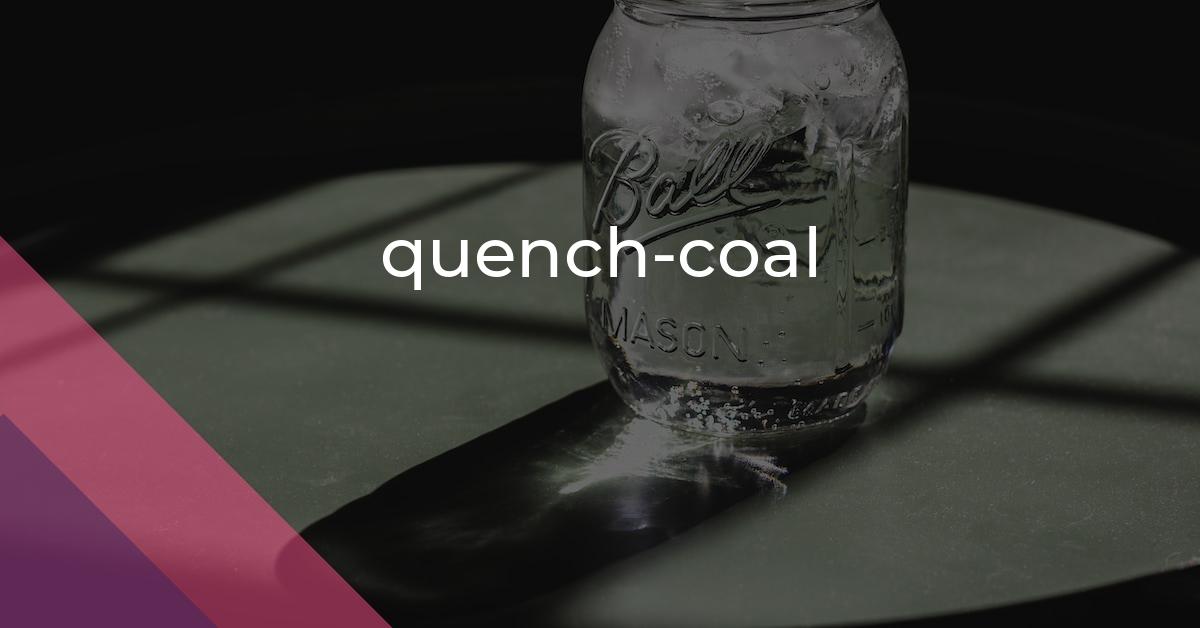quench-coal: Idiom Meaning and Origin
What does ‘quench-coal’ mean?
The idiom "quench-coal" refers to a rare and outdated term used to describe a coal that cannot be easily extinguished once ignited. This idiom is rarely used and may not be familiar to most people.

Idiom Explorer
The idiom "wet firecracker" typically refers to someone or something that fails to live up to expectations, lacks enthusiasm or excitement, and ultimately disappoints, similar to a firecracker that fails to ignite after getting wet.
The idiom "run out" means to exhaust the supply of something or to reach the end of a limited resource. It implies that there is no more of that specific thing available.
The idiom "run on fumes" means to continue doing something or functioning even though one has little energy, resources, or fuel left.
The idiom "run into the ground" means to exhaust or use up completely, often through overuse or mismanagement.
The idiom "powder keg" refers to a situation or place that is highly volatile and likely to explode or escalate into violence or chaos. It implies a lot of tension and potential danger, similar to a keg filled with gunpowder that can easily be ignited.
The idiom "pour gasoline on the fire" means to aggravate or worsen a situation by adding more conflict or controversy.
The idiom "pour fuel on the fire" means to worsen a situation or make a problem even more intense or volatile by saying or doing something that aggravates it further.
The idiom "pour cold water on" means to discourage or dampen enthusiasm for an idea, plan, or suggestion by expressing disapproval or skepticism.
A Hidden Inferno: Quench-Coal's Revelation.
The idiom "quench-coal" is a rare and obscure phrase with very limited usage in everyday language. While there is a lack of extensive information available on this idiom, we can examine the few existing sources to gain some insight into its meaning and origin.
According to the limited information available, "quench-coal" is believed to be a regional term originating from the United States, predominantly used in the southeastern states. It refers to the act of extinguishing hot coals or embers by pouring or sprinkling water over them.
Etymologically, the idiom seems to be a compound term consisting of the verb "quench" and the noun "coal." "Quench" refers to the act of satisfying one's thirst or thirst for knowledge, and it can also mean to extinguish or suppress something, such as a fire. On the other hand, "coal" is widely known as a fuel source that produces heat and fire when ignited.
While the exact context and usage of "quench-coal" are not extensively documented, it can be assumed that the idiom is used metaphorically to describe an action or process that dampens or suppresses an intense or passionate desire or emotion.
Given the limited evidence and usage of "quench-coal," it can be concluded that this idiom is not a common phrase in contemporary English. Its usage appears to be confined to specific regions of the United States and is not well-known or widely used outside of those areas. However, it is possible that the idiom could hold significance within certain local cultures, where it may have deeper historical or metaphorical connotations.
The ambiguity surrounding this idiom leaves room for speculation and further investigation. It raises questions about the historical use and significance of "quench-coal" within its regional context, as well as its potential metaphorical applications beyond its literal meaning. The idiom serves as a reminder of the vast and varied landscape of idiomatic expressions and their evocative power within specific communities.
The idiom "kindle-coal" is related to "quench-coal" in that it shares a similar theme of coal and fire. While "quench-coal" refers to the act of extinguishing coals, "kindle-coal" suggests the opposite - igniting or starting a fire. Both idioms evoke imagery related to the properties of coal as a fuel source and its ability to produce heat and fire.
Similarly, "coals to Newcastle" is another idiomatic expression that can be associated with "quench-coal." This phrase originates from a historical context and refers to a futile or unnecessary action. Newcastle, a city in England, was known for its large coal deposits and thriving coal export industry. Therefore, taking coals to Newcastle would be redundant, as the city already had an abundance of coal. This idiom can be seen as an example of using coal as a metaphor for abundance or excess.
Example usage
Examples of how the idiom "quench-coal" can be used in a sentence:
- After a long day at work, I quench-coaled by taking a relaxing bath.
- She quench-coaled her thirst with a cold glass of water after her workout.
- In order to quench-coal his anger, he decided to go for a run and clear his mind.
Analysis:
- The idiom "quench-coal" is not a common idiom and may not be well-known to many individuals.
- There is limited information available about the origin or meaning of the idiom "quench-coal".
- Given the lack of widespread usage and clear definitions, it is difficult to provide a more detailed analysis of this idiom.
More "Coal" idioms
We missed the mark - nothing found.



